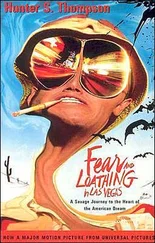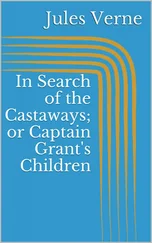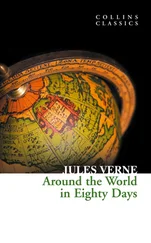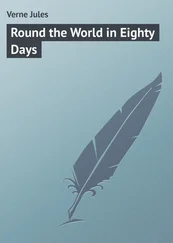Now it appeared to me as if breakfast was going to be wanting, just as supper had been the night before. Yet I resolved to be a hero, and not to be conquered by the pangs of hunger. Martha took it very seriously, and, poor woman, was very much distressed. As for me, the impossibility of leaving the house distressed me a good deal more, and for a very good reason. A caged lover’s feelings may easily be imagined.
My uncle went on working, his imagination went off rambling into the ideal world of combinations; he was far away from earth, and really far away from earthly wants.
About noon hunger began to stimulate me severely. Martha had, without thinking any harm, cleared out the larder the night before, so that now there was nothing left in the house. Still I held out; I made it a point of honour.
Two o’clock struck. This was becoming ridiculous; worse than that, unbearable. I began to say to myself that I was exaggerating the importance of the document; that my uncle would surely not believe in it, that he would set it down as a mere puzzle; that if it came to the worst, we should lay violent hands on him and keep him at home if he thought on venturing on the expedition that, after all, he might himself discover the key of the cipher, and that then I should be clear at the mere expense of my involuntary abstinence.
These reasons seemed excellent to me, though on the night before I should have rejected them with indignation; I even went so far as to condemn myself for my absurdity in having waited so long, and I finally resolved to let it all out.
I was therefore meditating a proper introduction to the matter, so as not to seem too abrupt, when the Professor jumped up, clapped on his hat, and prepared to go out.
Surely he was not going out, to shut us in again! no, never!
“Uncle!” I cried.
He seemed not to hear me.
“Uncle Liedenbrock!” I cried, lifting up my voice.
“Ay,” he answered like a man suddenly waking.
“Uncle, that key!”
“What key? The door key?”
“No, no!” I cried. “The key of the document.”
The Professor stared at me over his spectacles; no doubt he saw something unusual in the expression of my countenance; for he laid hold of my arm, and speechlessly questioned me with his eyes. Yes, never was a question more forcibly put.
I nodded my head up and down.
He shook his pityingly, as if he was dealing with a lunatic. I gave a more affirmative gesture.
His eyes glistened and sparkled with live fire, his hand was shaken threateningly.
This mute conversation at such a momentous crisis would have riveted the attention of the most indifferent. And the fact really was that I dared not speak now, so intense was the excitement for fear lest my uncle should smother me in his first joyful embraces. But he became so urgent that I was at last compelled to answer.
“Yes, that key, chance—”
“What is that you are saying?” he shouted with indescribable emotion.
“There, read that!” I said, presenting a sheet of paper on which I had written.
“But there is nothing in this,” he answered, crumpling up the paper.
“No, nothing until you proceed to read from the end to the beginning.”
I had not finished my sentence when the Professor broke out into a cry, nay, a roar. A new revelation burst in upon him. He was transformed!
“Aha, clever Saknussemm!” he cried. “You had first written out your sentence the wrong way.”
And darting upon the paper, with eyes bedimmed, and voice choked with emotion, he read the whole document from the last letter to the first.
It was conceived in the following terms:
In Sneffels Joculis craterem quem delibat Umbra Scartaris Julii intra calendas descende, Audax viator, et terrestre centrum attinges. Quod feci, Arne Saknussemm.[1]
Which bad Latin may be translated thus:
“Descend, bold traveller, into the crater of the jokul of Sneffels, which the shadow of Scartaris touches before the kalends of July, and you will attain the centre of the earth; which I have done, Arne Saknussemm.”
In reading this, my uncle gave a spring as if he had touched a Leyden jar. His audacity, his joy, and his convictions were magnificent to behold. He came and he went; he seized his head between both his hands; he pushed the chairs out of their places, he piled up his books; incredible as it may seem, he rattled his precious nodules of flints together; he sent a kick here, a thump there. At last his nerves calmed down, and like a man exhausted by too lavish an expenditure of vital power, he sank back exhausted into his armchair.
“What o’clock is it?” he asked after a few moments of silence.
“Three o’clock,” I replied.
“Is it really? The dinner-hour is past, and I did not know it. I am half dead with hunger. Come on, and after dinner—”
[1] In the cipher, audax is written avdas, and quod and quem, hod and ken . (Tr.)
“Well?”
“After dinner, pack up my trunk.”
“What?” I cried.
“And yours!” replied the indefatigable Professor, entering the dining-room.

Thus ended this memorable seance. That conversation threw me into a fever. I came out of my uncle’s study as if I had been stunned, and as if there was not air enough in all the streets of Hamburg to put me right again. I therefore made for the banks of the Elbe, where the steamer lands her passengers, which forms the communication between the city and the Hamburg railway.
Was I convinced of the truth of what I had heard? Had I not bent under the iron rule of the Professor Liedenbrock? Was I to believe him in earnest in his intention to penetrate to the centre of this massive globe? Had I been listening to the mad speculations of a lunatic, or to the scientific conclusions of a lofty genius? Where did truth stop? Where did error begin?
I was all adrift amongst a thousand contradictory hypotheses, but I could not lay hold of one.
Yet I remembered that I had been convinced, although now my enthusiasm was beginning to cool down; but I felt a desire to start at once, and not to lose time and courage by calm reflection. I had at that moment quite courage enough to strap my knapsack to my shoulders and start.
But I must confess that in another hour this unnatural excitement abated, my nerves became unstrung, and from the depths of the abysses of this earth I ascended to its surface again.
“It is quite absurd!” I cried, “there is no sense about it. No sensible young man should for a moment entertain such a proposal. The whole thing is non-existent. I have had a bad night, I have been dreaming of horrors.”
But I had followed the banks of the Elbe and passed the town. After passing the port too, I had reached the Altona road. I was led by a presentiment, soon to be realised; for shortly I espied my little Gräuben bravely returning with her light step to Hamburg.
“Gräuben!” I cried from afar off.
The young girl stopped, rather frightened perhaps to hear her name called after her on the high road. Ten yards more, and I had joined her.
“Axel!” she cried surprised. “What! have you come to meet me? Is this why you are here, sir?”
But when she had looked upon me, Gräuben could not fail to see the uneasiness and distress of my mind.
“What is the matter?” she said, holding out her hand.
“What is the matter, Gräuben?” I cried.
In a couple of minutes my pretty Virlandaise was fully informed of the position of affairs. For a time she was silent. Did her heart palpitate as mine did? I don’t know about that, but I know that her hand did not tremble in mine. We went on a hundred yards without speaking.
Читать дальше













